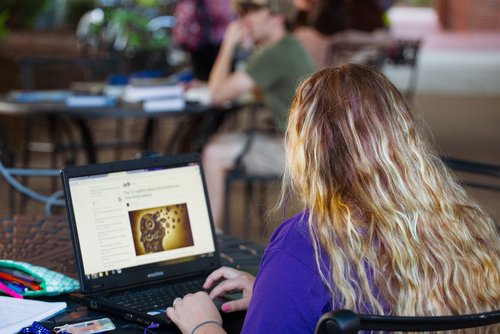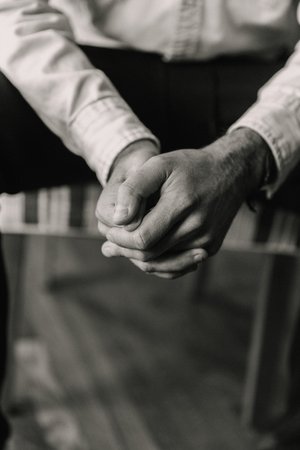Being a queer advocate goes beyond mere support; it involves actively championing the rights and well-being of the LGBTQ+ community. But what does being a queer advocate truly look like? In this blog post, we will delve into the fundamentals of queer advocacy, explore its significance in promoting equality and justice, and provide practical steps and strategies for becoming an effective advocate. Join us as we navigate the complexities, challenges, and inspiring impact of queer advocacy in today’s society.
Understanding Queer Advocacy: The Basics
Queer advocacy is rooted in the principles of social justice, equality, and inclusivity. It encompasses a range of activities aimed at raising awareness, challenging discrimination, and promoting the rights and well-being of the LGBTQ+ community. To fully grasp the essence of queer advocacy, it is essential to understand its basics. In this section, we will explore the key concepts and fundamental principles that underpin queer advocacy.
Defining Queer Advocacy
Queer advocacy can be defined as the active support and promotion of the rights, welfare, and visibility of individuals who identify as lesbian, gay, bisexual, transgender, or queer/questioning (LGBTQ+). It is an ongoing commitment to challenging societal norms, prejudices, and discriminatory practices that marginalize and oppress LGBTQ+ individuals.
Historical Context of Queer Advocacy
To comprehend the significance of queer advocacy today, it is crucial to acknowledge the historical struggles and milestones of the LGBTQ+ rights movement. From the Stonewall riots in 1969 to the fight for marriage equality, queer advocacy has evolved in response to societal and legal challenges.
Intersectionality and Queer Advocacy
Intersectionality plays a pivotal role in queer advocacy. It recognizes that individuals’ experiences of discrimination and oppression are shaped by the intersection of multiple identities, such as race, gender, class, and disability. Understanding and addressing these intersecting forms of marginalization are key aspects of effective queer advocacy.
Key Principles of Queer Advocacy
Queer advocacy is guided by several key principles that inform its approach and goals. These principles include:
- Equality: Queer advocates strive for equal rights, opportunities, and treatment for all LGBTQ+ individuals, regardless of their sexual orientation, gender identity, or expression.
- Inclusivity: Queer advocacy aims to create inclusive spaces and communities where every individual feels welcomed, respected, and valued, irrespective of their LGBTQ+ status.
- Visibility: Advocates work to increase the visibility and representation of LGBTQ+ individuals in various aspects of society, including media, politics, and public discourse.
- Education and Awareness: Queer advocates promote education and awareness about LGBTQ+ issues, fostering empathy, understanding, and acceptance.
- Policy and Legal Change: Advocacy efforts often focus on advocating for policy and legal changes that protect the rights and well-being of LGBTQ+ individuals, such as anti-discrimination laws and equal marriage rights.
Understanding these basics is crucial for anyone who aspires to be a queer advocate. As we delve deeper into the topic, we will explore the importance of queer advocacy and its impact on society.
Recognizing the Importance of Queer Advocacy
Queer advocacy plays a vital role in advancing equality, justice, and social change for the LGBTQ+ community. It is essential to recognize and understand the importance of queer advocacy to fully appreciate its significance in our society. In this section, we will explore the need for queer advocacy, its role in promoting equality and justice, and the broader effects it has on society as a whole.
The Need for Queer Advocacy
- Addressing Discrimination: Queer advocacy is necessary to combat the discrimination and prejudice faced by LGBTQ+ individuals in various aspects of life, including employment, housing, healthcare, and education. Advocates work to dismantle systemic barriers and create a more inclusive society.
- Fighting Stigma and Stereotypes: Advocacy efforts challenge harmful stereotypes and stigmatization of LGBTQ+ individuals, promoting acceptance and understanding.
- Supporting Mental Health and Well-being: Queer advocacy provides crucial support for the mental health and well-being of LGBTQ+ individuals. By creating safe spaces and resources, advocates help combat higher rates of mental health issues such as depression and anxiety faced by the community.
- Promoting Visibility and Representation: Advocacy plays a pivotal role in increasing the visibility and representation of LGBTQ+ individuals in all areas of society, including media, politics, and the workforce. This representation helps challenge heteronormative narratives and fosters inclusivity.
The Role of Queer Advocacy in Equality and Justice
- Advancing LGBTQ+ Rights: Queer advocacy has been instrumental in securing legal protections and rights for the LGBTQ+ community, including anti-discrimination laws, marriage equality, and transgender rights. Advocates work tirelessly to ensure these rights are upheld and expanded.
- Challenging Social Norms: Queer advocacy challenges societal norms and expectations regarding gender roles, sexuality, and relationships. By questioning and deconstructing these norms, advocates promote a more inclusive and accepting society.
- Intersectionality and Solidarity: Queer advocacy recognizes the interconnectedness of various forms of oppression and discrimination. It seeks to build alliances with other social justice movements, fostering solidarity and working towards collective liberation.
Effects of Queer Advocacy on Society
- Cultural Shift: Through advocacy efforts, attitudes and perceptions towards LGBTQ+ individuals have evolved over time. Increased acceptance, understanding, and support in society are direct results of queer advocacy.
- Legislative Change: Advocacy has played a significant role in driving legislative changes that protect LGBTQ+ rights. From anti-discrimination laws to gender recognition policies, advocates have influenced the legal landscape to promote equality.
- Creating Inclusive Communities: Queer advocacy helps create inclusive communities where LGBTQ+ individuals can live authentically and without fear of discrimination or violence. These communities foster a sense of belonging and support.
Recognizing the importance of queer advocacy is essential for individuals who want to make a positive impact and contribute to a more equitable and just society. In the following sections, we will delve into the practical steps and strategies for becoming an effective queer advocate.
Becoming a Queer Advocate: Steps and Strategies
Becoming a queer advocate involves not only a commitment to supporting the LGBTQ+ community but also actively working towards creating positive change. In this section, we will explore the steps and strategies that can help individuals become effective queer advocates.
Educating Yourself about Queer Issues
- Self-Education: Take the initiative to educate yourself about the experiences, challenges, and history of the LGBTQ+ community. Read books, articles, and research papers, and engage with diverse voices and perspectives.
- Attend Workshops and Events: Participate in workshops, seminars, and conferences focused on LGBTQ+ issues. These events provide opportunities to learn from experts and engage in discussions with like-minded individuals.
- Learn from LGBTQ+ Advocacy Organizations: Familiarize yourself with LGBTQ+ advocacy organizations such as Human Rights Campaign, GLAAD, and the Trevor Project. These organizations offer resources, educational materials, and opportunities for involvement.
Using Inclusive Language and Behavior
- Respect Pronouns and Identities: Use individuals’ preferred pronouns and respect their self-identified gender identities. Educate yourself about gender-neutral language and inclusive terminology.
- Challenge Homophobic and Transphobic Language: Speak up against homophobic and transphobic language or jokes. Create a safe and inclusive environment by promoting respectful communication.
- Avoid Stereotyping: Recognize and challenge stereotypes related to sexual orientation and gender identity. Treat each individual as unique and diverse, rather than making assumptions based on stereotypes.
Advocating in Your Community and Beyond
- Engage in Dialogue: Initiate conversations about LGBTQ+ issues with friends, family, and colleagues. Share your knowledge and experiences and listen actively to others’ perspectives.
- Support LGBTQ+ Organizations: Contribute your time, skills, or resources to local LGBTQ+ organizations. Volunteer, fundraise, or offer your expertise to support their advocacy efforts.
- Participate in Pride Events and LGBTQ+ Activism: Attend Pride parades, rallies, and demonstrations to show solidarity and support. Engage in activism by joining campaigns for LGBTQ+ rights and equality.
- Use Social Media for Advocacy: Utilize social media platforms to raise awareness, share resources, and amplify LGBTQ+ voices. Use hashtags and share educational content to reach a wider audience.
Becoming a queer advocate is an ongoing journey of learning, unlearning, and taking action. By educating yourself, using inclusive language, and actively advocating in your community and beyond, you can make a meaningful difference in the lives of LGBTQ+ individuals.
Challenges and Solutions in Queer Advocacy
Queer advocacy, like any form of activism, comes with its own set of challenges. It is important to understand and address these challenges to ensure effective advocacy for the LGBTQ+ community. In this section, we will explore common barriers faced by queer advocates, both personal and social, and discuss potential solutions to overcome them.
Identifying Common Barriers
- Prejudice and Discrimination: Queer advocates often face resistance, prejudice, and discrimination from individuals and institutions that hold homophobic or transphobic beliefs. Overcoming these barriers requires resilience and determination.
- Lack of Awareness and Understanding: Many people may not have a comprehensive understanding of LGBTQ+ issues or the experiences of queer individuals. This lack of awareness can hinder effective advocacy efforts.
- Legal and Policy Obstacles: Outdated or discriminatory laws and policies can impede progress in LGBTQ+ advocacy. Advocates may encounter challenges in changing legislation or implementing inclusive policies.
Addressing Personal and Social Challenges
- Self-Care and Burnout: Advocacy work can be emotionally draining and overwhelming. It is important for queer advocates to prioritize self-care, set boundaries, and seek support from their communities.
- Addressing Internalized Homophobia and Transphobia: Some queer individuals may internalize societal biases and struggle with self-acceptance. Advocates can provide resources and support to help individuals overcome internalized homophobia and transphobia.
- Building Alliances and Coalitions: Collaborating with other social justice movements and building alliances can strengthen advocacy efforts. By working collectively, advocates can amplify their voices and create a more united front.
Creating Safe Spaces for Dialogue
- Promoting Inclusive Education: Advocates can work towards creating educational spaces that foster inclusivity and provide accurate information about LGBTQ+ issues. This can dispel myths, challenge stereotypes, and promote understanding.
- Engaging in Constructive Conversations: Encouraging open and respectful dialogue is essential for challenging biases and promoting empathy. Advocates can facilitate conversations that promote understanding and break down barriers.
- Creating Support Networks: Establishing support networks for LGBTQ+ individuals and allies can provide a safe space for sharing experiences, seeking guidance, and fostering a sense of community.
Addressing the challenges in queer advocacy requires a multi-faceted approach that encompasses addressing personal and social barriers, promoting education and understanding, and creating safe spaces for dialogue. By recognizing and proactively tackling these challenges, queer advocates can navigate the path to meaningful change and progress.
The Impact of Queer Advocacy: Case Studies and Success Stories
Queer advocacy has a profound impact on individuals, communities, and society as a whole. In this section, we will explore case studies and success stories that highlight the transformative power of queer advocacy, showcasing real-life examples of its impact.
Case Study 1: Successful Advocacy Campaign
The “It Gets Better” Project: Launched in 2010 by Dan Savage and Terry Miller, the “It Gets Better” project aimed to provide hope and support to LGBTQ+ youth facing bullying and discrimination. Through a series of online videos featuring individuals sharing their personal stories of overcoming adversity, the project gained widespread attention and support. It helped create a global movement, inspiring countless LGBTQ+ youth to persevere and find hope for a brighter future.
Case Study 2: Impact on Legislation and Policy
Marriage Equality: Queer advocacy played a pivotal role in the fight for marriage equality worldwide. In 2001, the Netherlands became the first country to legalize same-sex marriage, followed by numerous others. Advocacy efforts included grassroots campaigns, legal challenges, and public education initiatives. The impact of these efforts is evident in the growing number of countries and regions that recognize and uphold the right to marriage for LGBTQ+ individuals.
Personal Stories of Queer Advocacy
Harvey Milk: Harvey Milk was a prominent LGBTQ+ advocate and politician in the 1970s. As one of the first openly gay elected officials in the United States, Milk fought tirelessly for LGBTQ+ rights and representation. His assassination in 1978 elevated the visibility of LGBTQ+ issues and inspired countless individuals to become advocates for equality.
The Trevor Project: The Trevor Project is a non-profit organization providing crisis intervention and suicide prevention services to LGBTQ+ youth. Through their helpline, online resources, and advocacy work, the Trevor Project has saved countless lives and provided vital support to vulnerable LGBTQ+ individuals.
These case studies and success stories demonstrate the tangible impact of queer advocacy. From inspiring hope and resilience to effecting legislative change, the power of advocacy lies in its ability to create a more inclusive and equitable society. By amplifying voices, challenging norms, and fostering understanding, queer advocates continue to make a lasting impact on the lives of LGBTQ+ individuals and communities.


















